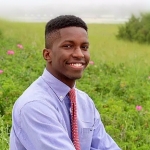
Mr. David Wicai
Working With or For Everyone in an Organization
Posted by Apr 28, 2016

Mr. David Wicai
We have all heard or said the phrase: “I wear many hats within my organization”, as if we are justifying our importance (like my Great Dane tries to justify her importance by licking my face down to the bones). We all play important roles within our organizations. I have certainly used this phrase in some shape or form, but staying humble about our numerous roles can really pay dividends as we move forward in our careers.
Working with or for everyone does not always mean everyone is asking you to do something for them. More frequently, it means asking others how you can be involved in what they are doing. This approach not only expands knowledge in the short term, but it can lead to long term benefits including building new relationships or creating opportunities to take on more responsibility. Here are my keys to success when it comes to working with or for everyone in your organization.
Read More











